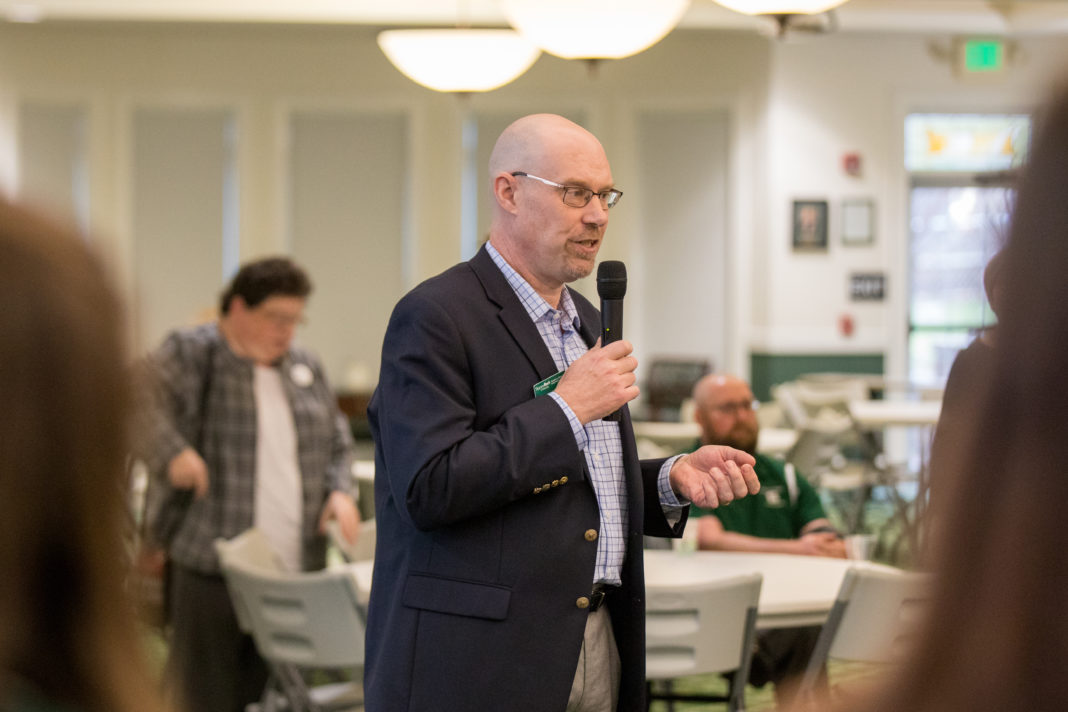When SRU applied for the Carnegie Community Engagement Classification in 2010 and 2015, the university wasn’t successful in earning the elective classification.
However, after the creation of the Office of Community-Engaged Learning (OCEL) in 2016, the submission of a 100-page application and other changes on the service and academic levels, SRU earned the classification in 2020.
“This has been a long time coming for SRU,” Jeffrey Rathlef, OCEL’s director, said.
The Carnegie Community Engagement Classification is from the Carnegie Foundation at Brown University’s Swearer Center. The application process involves data collection and documentation, including assessments. SRU joins over 350 institutions and 27 schools in Pennsylvania to earn the elective classification.
SRU is the fourth school in the Pennsylvania State System of Higher Education (PASSHE) to earn the classification, following Bloomsburg University, Millersville University and West Chester University.
SRU has earned the Carnegie Community Engagement Classification after previously applying once in 2010 and once in 2015 with no success. In response to the 2015 feedback from the application, SRU created OCEL to serve as a hub for service-learning programs. At that time, Rathlef was hired as OCEL’s director and Laura Villers joined OCEL as the assistant director for community-engaged service and leadership.
There was also a committee dedicated to the classification department led by Linda Zane, associate professor in elementary education/early childhood education, David Kershaw, associate professor in political science, Joseph Robare, associate professor of public health and social work, Natalie Dick, assistant professor in healthcare administration and information systems, and Villers from OCEL.
Rathlef said that the process of the classification led to improvements through documentation and assessment before SRU even earned the classification.
“The true benefit of this classification is what the process allows you to build,” Rathlef said. “Much like accreditation, the classification, the process of actually documenting the stuff and assessing it, allows you to improve its quality. The benefit of the classification is actually the process of doing the application itself.
Across SRU, two academic achievements added to the success of the classification process. During the classification process, administration revised goal nine of SRU’s strategic plan to emphasize mutually-beneficial partnerships, changing the language of the goal from its original “outreach”-based goal. Additionally, since fall 2017, the number of high-impact practice service learning courses has increased by 271% (from 504 students in the 2017-18 academic year to 1,368 this year).
In a celebration in the Russell Wright Alumni House on Thursday, Feb. 6, OCEL representatives, community members, SRU administrators and members of the Carnegie Classification Committee gathered to discuss the honor and share their experiences with community-engaged learning.
Sam Hauser, a second-year graduate student in student affairs in higher education and graduate assistant for service leadership programming, said that her experience with OCEL began during her undergraduate program at The Rock.
“For myself, I fell down this rabbit hole four years ago,” Hauser said. “I was just working an office so I can pay rent, then Jeffrey and Laura came on and changed everything. It inspired me to continue to do this work as a student affairs professional.”
At the celebration, SRU President William Behre said that the classification serves as a connection between what students learn on campus and how they can apply that knowledge to opportunities in the Slippery Rock community.
“What’s great about being a campus that is committed to community engagement is it really does create an intellectual bridge between what we do on campus and how we apply the good works that are done on campus everywhere in the community around us,” Behre said. “You cannot simulate that in the classroom.”
Moving forward, Rathlef said that SRU still has areas for improvement as listed in the feedback for the Carnegie Classification. While SRU doesn’t need to reapply for reclassification for another six years, these improvement areas will be a focus going forward.
“The OCEL was a big part of [the classification], we did our part, but it was a campus-wide effort and it’s a campus-wide recognition,” Rathlef said.








